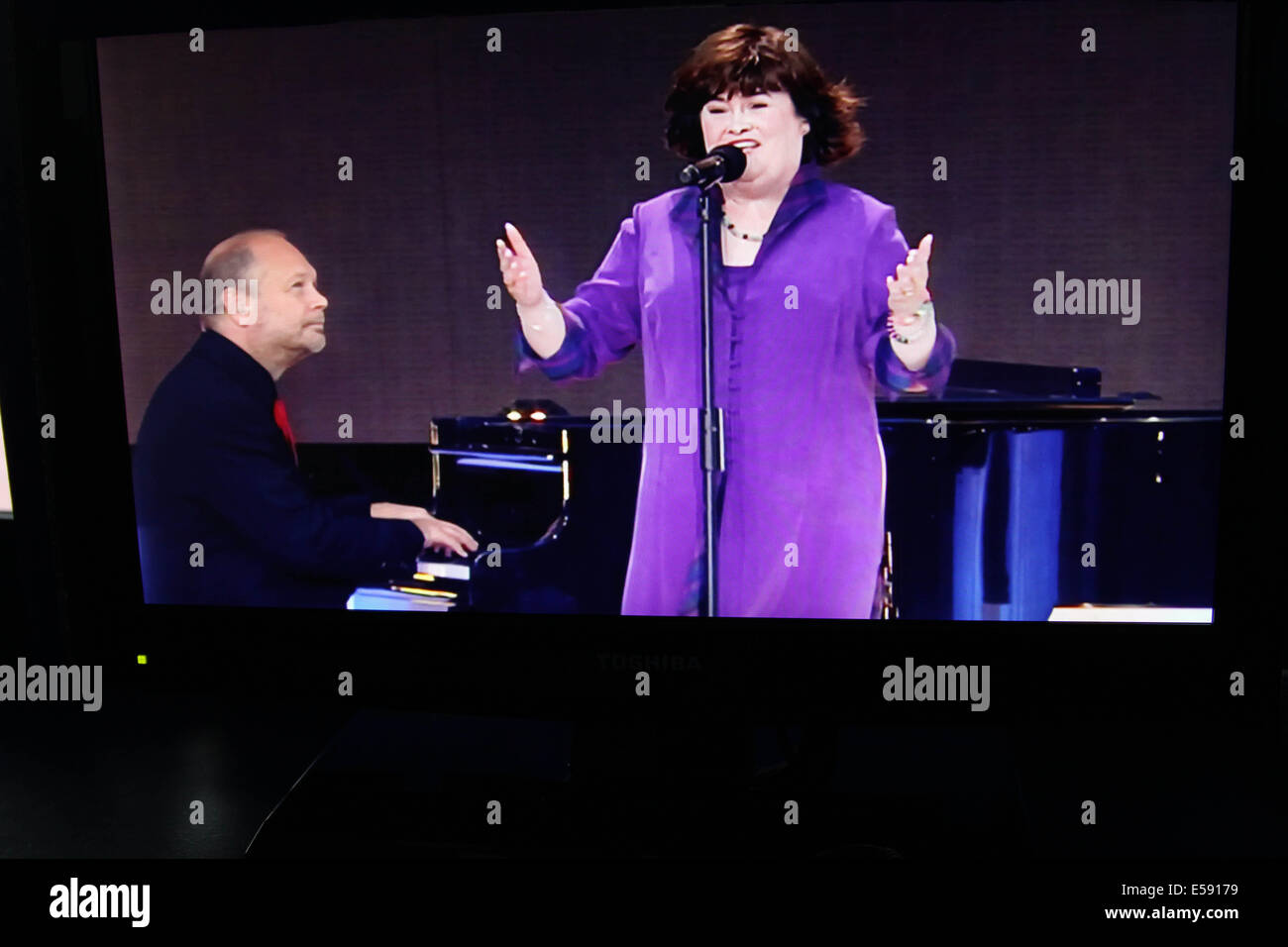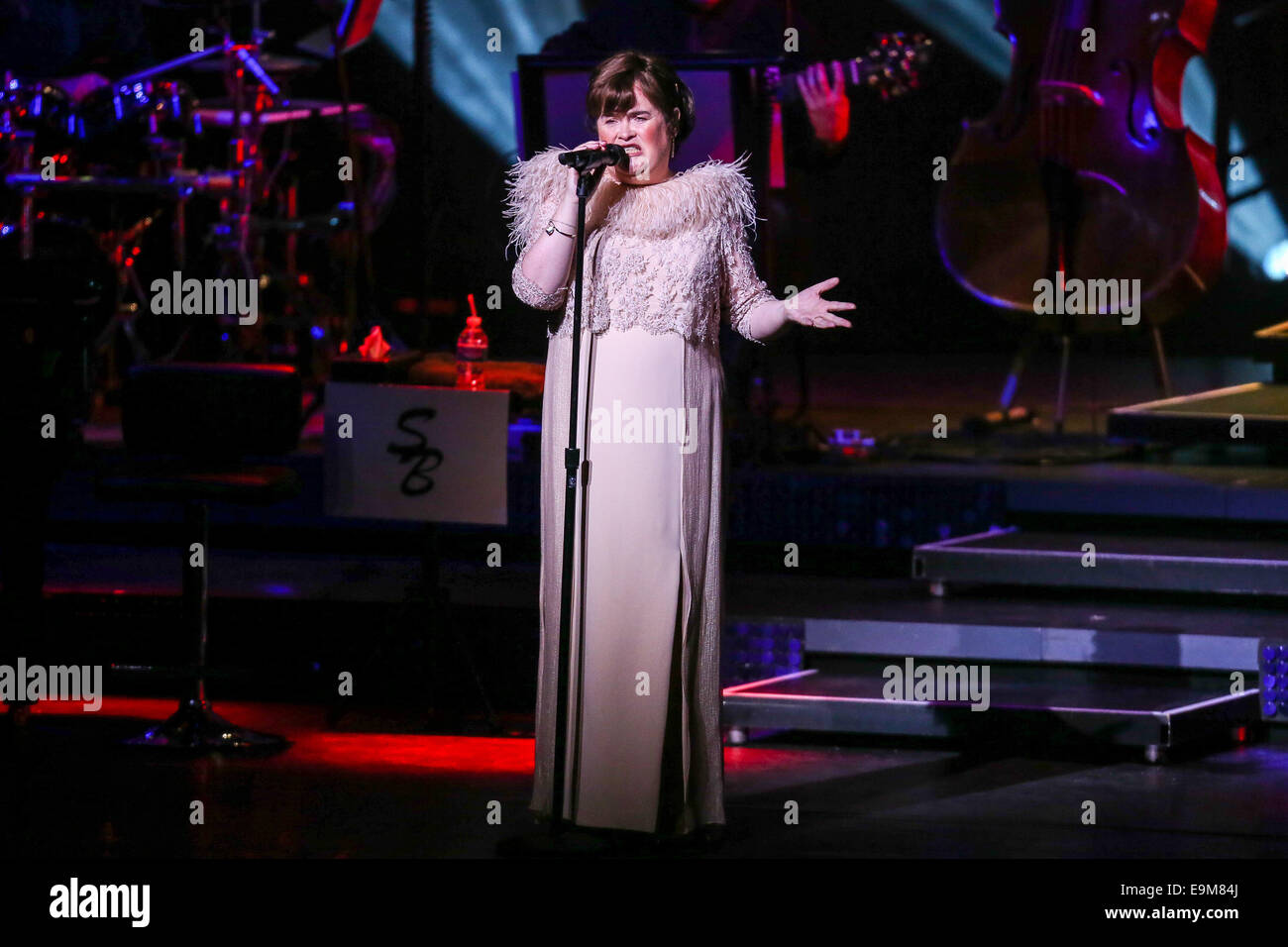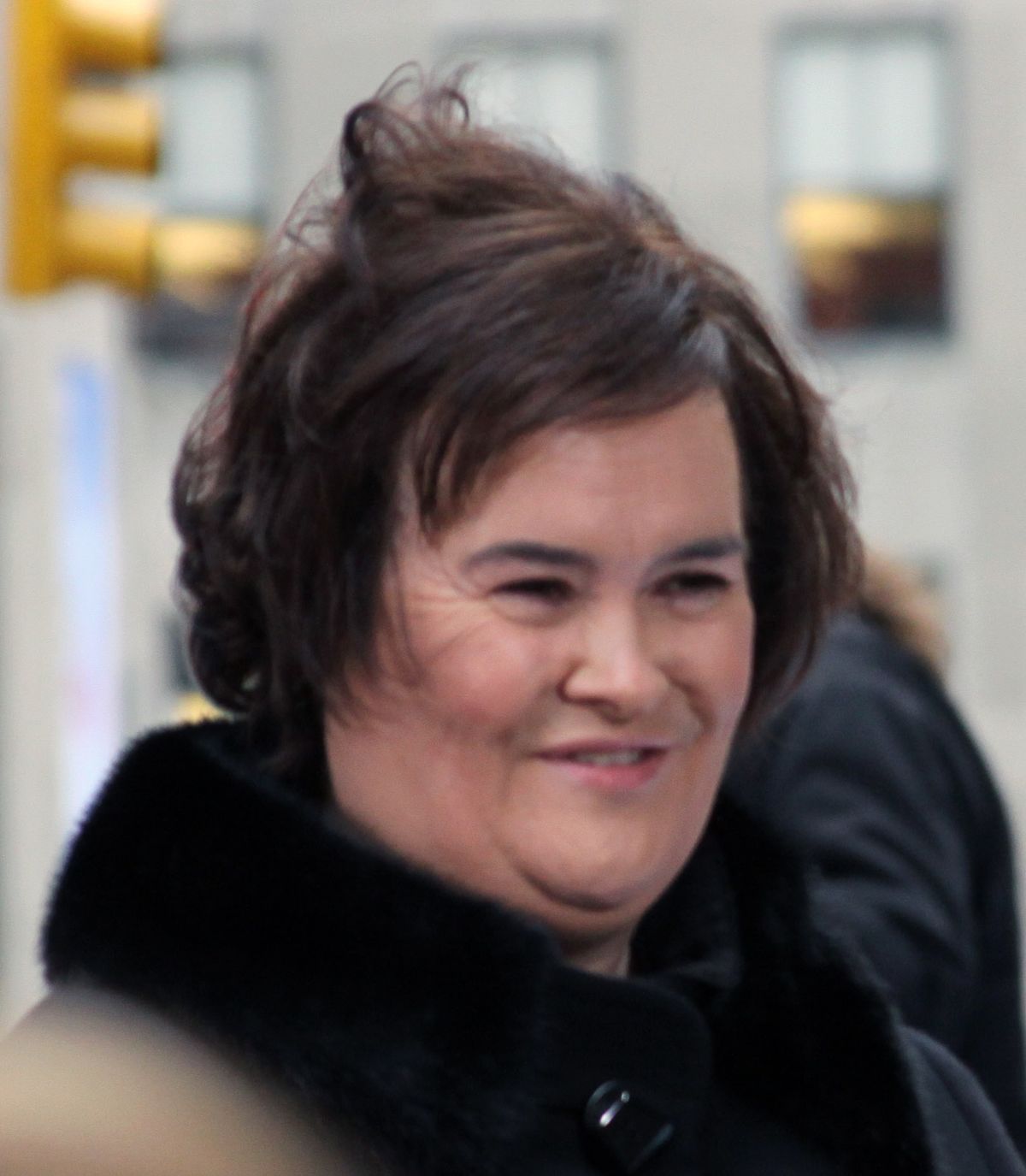Sometimes, a name can carry so much more than just a label; it holds a story, a history, a whisper from times long past. When we think of Susan Magdalane Boyle, you know, it's almost like her very name, Susan, has its own tale to tell, separate from the person who bears it. It’s a name that has traveled through ages, picking up bits of meaning and cultural touches along the way.
This particular name, Susan, it really has a history that reaches back quite a distance, stretching across different languages and peoples. It is that kind of name that makes you think about how words themselves change and adapt, finding new homes and new ways of being understood. For many, it might just seem like a common name, something you hear every day, yet there's a good deal more to it than meets the eye, apparently.
In some respects, the journey of the name Susan, the one that Susan Magdalane Boyle carries, shows us how certain sounds and meanings can stick around for generations. It saw a great deal of favor for a while, particularly during the middle part of the last century, becoming a familiar sound in many homes. Now, it tends to be a name we hear often among people who are parents or even grandparents, which just goes to show its lasting presence.
- Chatgpt Plus Subscription Iran How To Buy
- Danica Mckellar Kids
- Barbara Bach Sister
- Erome Sofía Rain
- Sophierain Erome
Table of Contents
- The Story of a Name - Susan Magdalane Boyle
- What Does the Name Susan Magdalane Boyle Really Mean?
- How Did the Name Susan Magdalane Boyle Become So Common?
- What is the Origin of the Name Susan Magdalane Boyle?
- Is There More to the Name Susan Magdalane Boyle's History?
- The Name Susan Magdalane Boyle - A Look at its Journey
- The Enduring Appeal of Susan Magdalane Boyle's Name
- Susan Magdalane Boyle - A Name's Enduring Legacy
- The Name Susan Magdalane Boyle in Culture and Time
The Story of a Name - Susan Magdalane Boyle
Every name has a little piece of history tucked inside it, and the name Susan, as in Susan Magdalane Boyle, is no exception. It’s not just a collection of letters; it’s a word with a background, a connection to ancient tongues and deep symbolic meanings. People often give names without thinking much about their past, but for a name like Susan, there’s actually quite a bit to uncover if you take a moment to look. It’s pretty fascinating, you know, how these things work.
This name, Susan, which is a feminine name, has a story that goes back to the Hebrew language. It is a version of other names, like Susanna or Susannah, which are more complete forms, if you will. These names all stem from an even older Hebrew word, Shoshana, which itself points to a specific kind of flower. So, when we hear Susan Magdalane Boyle, the very first part of her name carries this long, flowery tradition with it, you see.
For quite some time, the name Susan was really quite popular, especially in places like the United States and the United Kingdom. It was a common choice for many families during certain decades, becoming a familiar sound in many households. Even now, while it might not be at its absolute peak, it’s still a name that many people recognize and connect with, particularly among certain generations. It’s a name that has truly stood the test of time, in a way.
- Gloria Torres Onlyfnas
- Buy Chatgpt Plus Iran Payment Method
- Openai Chatgpt Subscription Iran Payment
- Chatgpt Plus Subscription Iran
- Mckinley Richardson Leak Naked
Details of the Name Susan
| Origin Language | Hebrew |
| Primary Meaning | Lily, Lotus Flower, Lily of the Valley |
| Gender Association | Predominantly feminine |
| Common Versions | Susanna, Susannah, Shoshana |
| Historical Popularity Peak | 1930s to 1960s (US & UK) |
| Current Usage Trend | Common among mothers and grandmothers |
What Does the Name Susan Magdalane Boyle Really Mean?
So, what exactly does the name Susan, the one Susan Magdalane Boyle carries, actually mean? Well, when you get down to it, the core meaning is tied to a flower. It’s all about the lily, or sometimes, the lotus flower, or even the lily of the valley. This connection to flowers is a very old one, coming straight from its Hebrew roots. It suggests a certain kind of beauty and grace, a natural elegance that the name itself seems to hold, literally.
The Hebrew word "shoshan," which is where much of this comes from, refers to a flower that has a deep meaning in many ancient cultures. A lily, for example, often represents purity and rebirth, a fresh start. A lotus flower, too, carries ideas of spiritual growth and beauty that rises from difficult places. So, when you think about the name Susan Magdalane Boyle, you can almost feel the gentle strength and simple beauty that these flower meanings bring to it, pretty much.
This flower meaning, you know, it’s not just a simple definition; it’s a whole set of ideas and feelings that have been passed down through the ages. It gives the name Susan a kind of softness, a connection to the natural world, and a timeless quality. It’s like the name itself has a gentle presence, much like a flower blooming. It’s a rather lovely thought, isn’t it, that a name can carry such a picture in its very sound?
How Did the Name Susan Magdalane Boyle Become So Common?
It’s interesting to think about how a name like Susan, the one Susan Magdalane Boyle has, can become so widely used. For a good stretch of time, from the 1930s right up to the 1960s, this name was really having its moment, especially in places like America and Britain. It was a name that many parents picked for their baby girls, making it a very familiar sound in homes and playgrounds everywhere. It’s kind of like a trend, but for names, you see.
During those decades, the name Susan was not just popular; it was extremely popular, particularly in the United States during the earlier part of the 20th century. This kind of widespread use means that a whole generation of people grew up with many Susans around them. It speaks to a certain appeal the name had, perhaps its simple sound or its pleasant meaning, that made it a go-to choice for so many. It just had a way of catching on, apparently.
Now, while it’s not as overwhelmingly popular as it once was, the name Susan, like the one Susan Magdalane Boyle uses, still has a steady presence. It’s a name that is often found among people who are now mothers or grandmothers, which makes sense given its past popularity. This shows how names move through time, becoming more common in certain periods and then settling into a more established, familiar role. It's a bit like an old friend that you know will always be there.
What is the Origin of the Name Susan Magdalane Boyle?
The origin of the name Susan, as in Susan Magdalane Boyle, goes back to the Hebrew language, as we’ve talked about, with its meaning connected to the lily. But the story of its journey is actually a little bit wider than just one language. Scholars, those who study such things, believe that the name Susan might even have roots in an ancient Egyptian word, which then influenced the Hebrew form. So, it’s got a pretty long and winding path, doesn't it?
This name has also been linked to ancient Persian and Greek cultures, suggesting that its influence spread across different parts of the world a long, long time ago. It’s not just a name that stayed in one place; it traveled, adapting slightly as it moved from one language to another, but always keeping that core flower meaning. It’s a bit like a seed that blows in the wind and takes root in many different soils, you know.
So, when we consider the name Susan Magdalane Boyle, we’re looking at a name that has been shaped by various ancient traditions. It’s a name that has been around for a very long time, carrying with it echoes of different civilizations and their ways of seeing the world. It’s pretty cool, actually, to think about how much history can be packed into just a few syllables, you know, when you really think about it.
Is There More to the Name Susan Magdalane Boyle's History?
Yes, there is actually a little more to the story of the name Susan, the one that Susan Magdalane Boyle has. It’s often seen as a shorter version, a kind of contraction, of names like Susanna, which is found in English, German, and Italian. This shows how names can get trimmed down over time, becoming easier to say or just evolving naturally as language changes. It’s a natural process, really, that happens with many words, not just names.
The name Susan has also gained wider recognition because of its use in different cultures, not just in its original forms. This means that people from various backgrounds have adopted it, making it even more widespread and familiar. It’s like a popular tune that gets played in many different styles, but you can still recognize the melody. That’s kind of what happened with the name Susan, in a way.
And speaking of its history, there are times when the name Susan has popped up in interesting cultural moments. For instance, there was a casting call for a film after a certain democratic convention in 1968, and the roles were for young people who had been involved in some kind of disruption. This shows how names, even Susan, can become part of the fabric of historical events, reflecting the times they are in. It’s a rather subtle way that names get woven into our shared stories, you see.
The Name Susan Magdalane Boyle - A Look at its Journey
The journey of the name Susan, the one Susan Magdalane Boyle holds, is a remarkable one, showing how words can move across continents and through centuries. It started in ancient times, with meanings connected to beautiful flowers, and slowly, over many years, it made its way into different languages and cultures. It's like a quiet traveler, carrying its original meaning but picking up new associations as it goes. It’s quite a long trip, actually, for a name.
From its Hebrew origins, the name Susan found its way into Greek, then Latin, and eventually into many European languages, including English. Each step of this journey saw the name adapt slightly, sometimes changing its spelling or pronunciation, but always keeping that core connection to the lily or lotus. This kind of movement shows how interconnected our languages and histories really are, you know, when you think about it.
The popularity of the name Susan in the 20th century, especially in the mid-decades, is a testament to its enduring appeal. It wasn't just a fleeting trend; it was a name that resonated with many people for a significant period. This widespread adoption means that the name Susan, the one Susan Magdalane Boyle uses, became a part of everyday life for generations, a common thread in the tapestry of names that define an era. It really left its mark, so to speak.
The Enduring Appeal of Susan Magdalane Boyle's Name
Even though the name Susan, like the one Susan Magdalane Boyle carries, might not be topping the popularity charts for newborns these days, it still has a lasting appeal. It’s a name that many people recognize instantly, and it often brings to mind a sense of familiarity and warmth. This is because so many mothers and grandmothers today bear the name, making it a comforting sound for many families. It’s still very much a part of our naming landscape, pretty much.
The simplicity of the name Susan, its clear sound, and its gentle meaning, all contribute to why it has remained a choice for so many. It doesn't have a complicated pronunciation, and its connection to a beautiful flower gives it a natural charm. This kind of straightforwardness can be very appealing to people looking for a name that is both classic and easy to use. It just works, you know, for many people.
The fact that the name Susan has been around for so long, and has seen such widespread use, gives it a kind of timeless quality. It’s not a name that feels tied to just one moment in history; rather, it feels like it could belong to any time. This enduring nature is a big part of its appeal, allowing it to continue to be a cherished name for many, including those who share it with Susan Magdalane Boyle. It’s a name that really sticks around.
Susan Magdalane Boyle - A Name's Enduring Legacy
The name Susan, the very one Susan Magdalane Boyle has, carries an enduring legacy, not just in its meaning but also through the people who have borne it. For instance, a very notable person who carried the name was the American feminist Susan B. This shows how a name can become associated with individuals who make a mark on history, even if they are not Susan Magdalane Boyle herself. It adds another layer of meaning to the name, you see.
The popularity of the name Susan has also been helped along by its presence in different forms of culture. When a name shows up in books, or in films, or in public discussions, it becomes more ingrained in the collective mind. This kind of cultural presence helps a name to stay relevant and familiar across generations, even when its peak popularity might have passed. It’s like the name gets little boosts from time to time, you know.
So, the name Susan, as in Susan Magdalane Boyle, is not just a personal identifier; it’s a small piece of shared cultural heritage. It’s a name that has been part of significant historical moments, carried by people who have shaped their times, and woven into the stories we tell ourselves. This long and varied history gives the name a depth that goes beyond its simple sound, making it a name with a lasting impact, pretty much.
The Name Susan Magdalane Boyle in Culture and Time
The name Susan, the one Susan Magdalane Boyle has, truly shows how names reflect the times they are in and how they move through different cultural landscapes. It’s a name that was once extremely common, almost ubiquitous in certain decades, reflecting naming trends and perhaps even the values of those periods. Names often tell us something about the society that uses them, and Susan is a good example of this, you know.
Its journey from ancient Hebrew to its widespread use in the English-speaking world shows a fascinating path of cultural exchange and linguistic evolution. The fact that it has connections to Egyptian, Persian, and Greek origins, too, highlights how names can be little bridges between different civilizations. It’s a very interesting way to look at how cultures interact over long periods of time, actually.
Even now, as the name Susan, like the one Susan Magdalane Boyle carries, is more common among older generations, it continues to be a familiar and well-loved name. It stands as a reminder of its past popularity and its deep roots, a name that has truly endured. It’s a name that has seen many things, if you will, through the people who have borne it and the times they lived in. It’s pretty cool, if you ask me, how a name can have such a long story.
- Sophie Rain Erome
- Iran To Israel Distance
- Pathivara Temple Trekking Routes
- Chatgpt Plus Iran Purchase
- Robert Paul Schoonover



